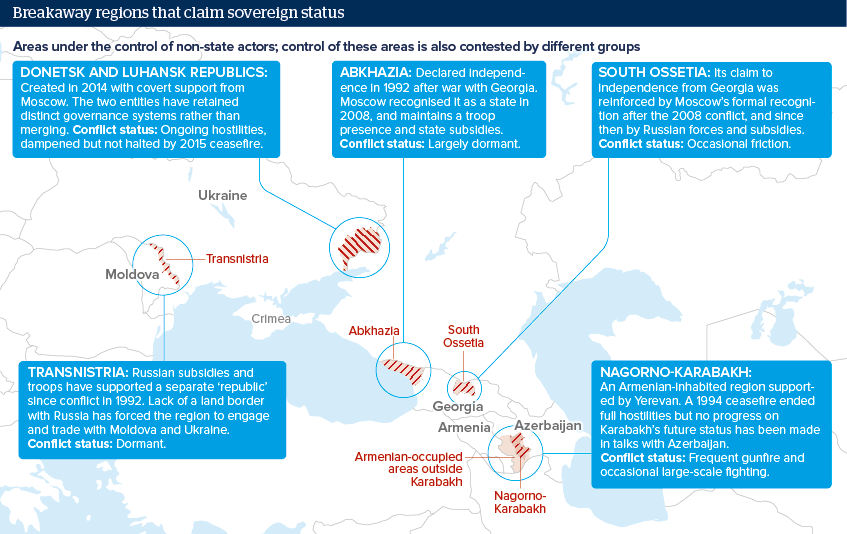Few options for post-Soviet 'shadow governance' zones
Attempts to win recognition have failed and annexation by 'patron states' would present large challenges

Source: Oxford Analytica
Outlook
Russian influence is a determining factor in the persistence of 'shadow governance' in post-Soviet states. Transnistria, South Ossetia and Abkhazia have government structures, public services and armed forces, but rely on Moscow for subsidies and security. Since 2014, the Donetsk and Luhansk 'People's Republics' in eastern Ukraine have acquired a similar uncertain status. None has gone the way of Crimea, swiftly annexed by Russia after declaring independence in March 2014.
Resolution of their future status is constrained by the value to Moscow of 'frozen conflict' leverage on Moldova, Georgia and Ukraine. Nagorno-Karabakh's allegiance is to Armenia. It, too, is likely to remain in limbo rather than achieving independence or annexation.
Impacts
- More frequent and intense clashes around Karabakh become more dangerous in the broader context of Russian-Turkish tensions.
- Budget constraints will force Moscow further to curtail state subsidies to its client entities, which have few domestic sources of growth.
- South Ossetia will test Moscow's appetite for a 'second Crimea' scenario with a referendum this summer opening the way to annexation.
- Internal problems will force Moldova to focus more on the divide between pro-Russia and pro-EU views than on reclaiming Transnistria.
See also
- Moldova and Transnistria edge towards cooperation - May 23, 2018
- Russia and Turkey will avoid igniting Karabakh war - Apr 13, 2016
- More graphic analysis